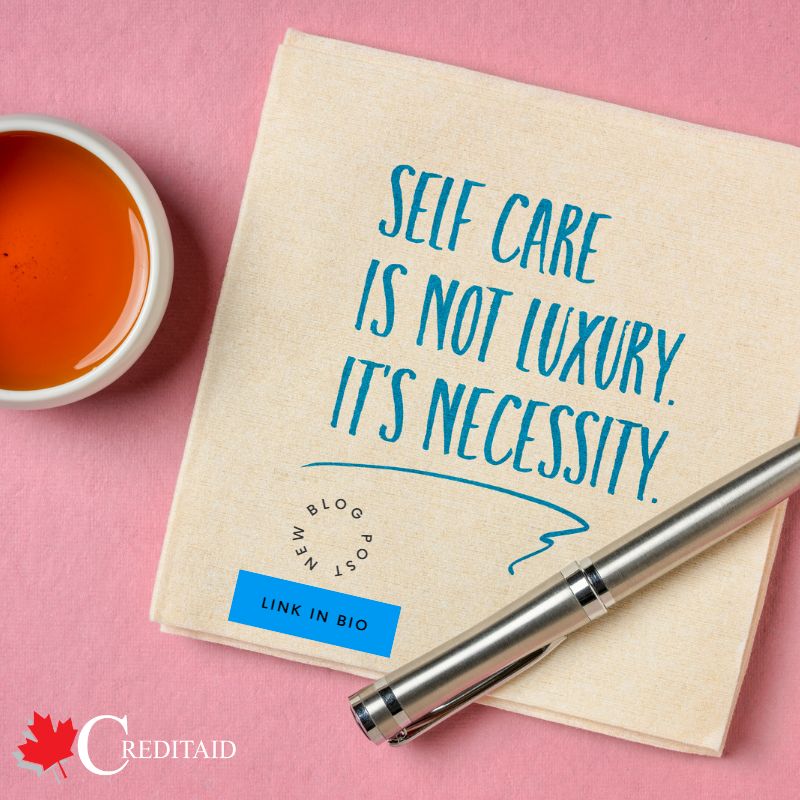In today’s fast-paced world, financial stress has become an all-too-common burden for many individuals and families. The weight of debt can be overwhelming, often leading to anxiety, sleepless nights, and even a negative impact on our physical and mental well-being. However, it’s essential to remember that you are not alone in this journey. With compassion and self-care, you can navigate your way toward financial wellness and alleviate the stress that debt brings. In this blog, we will explore some practical self-care tips to help you manage debt-related stress and cultivate a healthier relationship with your finances.
1. Acknowledge Your Feelings:
The first step in dealing with debt-related stress is acknowledging your emotions. It’s completely normal to feel overwhelmed, anxious, or even ashamed about your financial situation. Remember, your worth is not defined by your bank balance. Allow yourself to feel these emotions, and don’t be too hard on yourself. By accepting your feelings, you can begin to address them with greater clarity and compassion.
2. Seek Support:
Debt-related stress can often make us feel isolated, but it’s crucial to reach out for support. Confide in a trusted friend or family member who can provide a listening ear and emotional support. Sometimes, simply talking about your concerns can bring relief and perspective. If needed, consider seeking professional advice from financial counsellors or debt management agencies. They can offer guidance tailored to your specific situation and help you develop a plan to regain control of your finances.
3. Practice Mindfulness:
Mindfulness is a powerful tool for managing stress in any situation, including debt-related stress. Take a few moments each day to focus on your breath, grounding yourself in the present moment. Notice any anxious thoughts or worries that arise and let them pass without judgment. Engage in activities that promote mindfulness, such as meditation, yoga, or even going for a calming walk in nature. By practicing mindfulness, you can cultivate a sense of peace and reduce the negative impact of financial stress on your overall well-being.
4. Create a Realistic Budget:
Developing a realistic budget is an essential step toward financial wellness. Take the time to assess your income, expenses, and debt obligations. Create a budget that prioritizes necessary expenses while allowing for some flexibility and enjoyment. Be honest with yourself about your financial limitations and set achievable goals for paying off your debt. Breaking down your debt into manageable portions can help alleviate the overwhelming feeling of being stuck in a never-ending cycle. If you need help, reach out for a free consultation with one of our credit counsellors.
5. Focus on Self-Care:
During times of financial stress, self-care often takes a backseat. However, taking care of yourself is crucial for maintaining overall well-being. Engage in activities that bring you joy and relaxation, such as reading a book, taking a warm bath, or pursuing a hobby. Remember to prioritize sleep, exercise regularly, and eat nourishing foods. When you invest in your physical and mental health, you build resilience and the ability to face financial challenges with a clear mind.
6. Celebrate Small Victories:
As you work towards financial wellness, don’t forget to celebrate small victories along the way. Every step you take towards reducing your debt is an achievement worth acknowledging. Treat yourself to simple rewards for meeting financial milestones, such as paying off a credit card or sticking to your budget for a month. Celebrating these accomplishments will not only boost your motivation but also remind you of your progress and the positive changes you are making.
Debt-related stress can feel overwhelming, but by embracing self-care and practicing compassion towards yourself, you can navigate your way toward financial wellness. Remember to acknowledge your feelings, seek support, and practice mindfulness. Create a realistic budget, prioritize self-care, and celebrate your progress along the way. By implementing these self-care tips, you will not only improve your financial situation but also enhance your overall well-being, paving the way for a brighter and more secure future.











